Are you a landlord facing the challenge of unpaid rent from a tenant? It's a situation that often leads to frustration and uncertainty, but communication is key. In this article, we'll explore an effective letter template that not only addresses the issue professionally but also fosters a constructive dialogue. Keep reading to discover how you can take the next steps toward resolution!
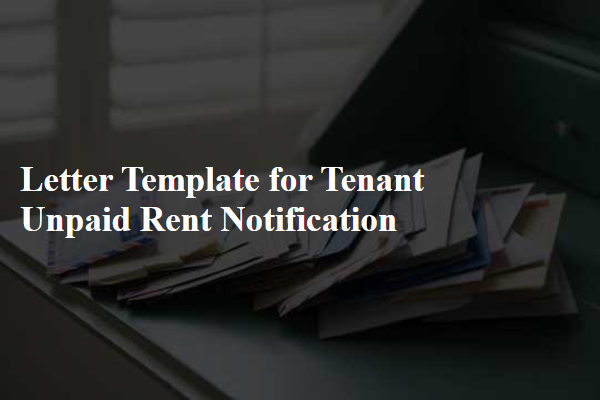
Clear and Firm Subject Line
Rental payment delays can create significant financial strain for landlords. Unpaid rent reminders should clearly state the tenant's name, rental property address, and the amount due. The notice should include the rental due date (usually specified in the lease agreement) and outline any applicable late fees for overdue payments. Reference local rental laws or lease terms that support the request for timely payments. Provide a specific deadline for payment to avoid further action, ensuring a clear, firm communication tone that maintains professionalism while conveying urgency. Consider including contact information for questions or additional discussions to promote open communication.
Tenant's Personal Details
The tenant's personal details, which encompass essential information such as the full name (John Doe), address (123 Elm Street, Springfield), contact number (555-1234), and email address (johndoe@email.com), are crucial for effective communication regarding the unpaid rent situation. The lease agreement effective date (January 1, 2022) establishes the legal obligations. Additionally, the specific rental payment due date (the 1st of every month) indicates the timeline of the overdue payment (October rent). Accurate tracking of the unpaid amount ($1,200) informs the tenant about their financial responsibility. Identifying the management or landlord's name (XYZ Property Management) reflects the entity responsible for rent collection and enables clear responses to the notification regarding payment arrangements or disputes.
Rent Amount and Due Date
Unpaid rent can lead to significant issues for landlords and tenants alike, impacting financial stability and housing security. For instance, if a tenant fails to pay a monthly rent amount of $1,200, which was due on the first of the month, immediate communication is essential to address the situation. A notice should clearly outline the unpaid rent amount, specify the due date, and explain any potential consequences of continued non-payment, such as late fees or eviction proceedings, as per local landlord-tenant laws in the jurisdiction, such as California or New York, which have specific regulations governing rental agreements. Prompt and firm action can help maintain a good landlord-tenant relationship while ensuring compliance with financial obligations.
Late Fee and Consequences
In situations of unpaid rent, landlords must address the issue promptly and clearly with tenants. For example, if a tenant residing at 123 Maple Street has failed to pay the rent due on September 1, 2023, it is crucial to reference the terms outlined in the lease agreement. According to the lease provisions, a late fee of 5% of the rent may be imposed after a grace period of 3 days. In this case, the tenant is informed that the late fee will apply on September 4, 2023, leading to additional financial strain. Should the unpaid rent not be resolved by September 15, 2023, potential consequences include legal actions or eviction notices, highlighting the importance of timely payments for the integrity of the landlord-tenant relationship.
Contact Information for Resolution
Unpaid rent notifications often stem from financial difficulties faced by tenants, typically occurring in rental agreements governed by local laws. Many landlords initiate contact during the first week of default, emphasizing the importance of timely communication regarding overdue payments, often exceeding 30 days. Common resolution methods include setting up payment plans, discussing temporary rent concessions, or seeking assistance from local tenant assistance programs, such as those provided by non-profits and housing authorities. Effective communication can encourage tenants to reach out with solutions, fostering opportunities to maintain long-term rental relationships and avoid legal actions.

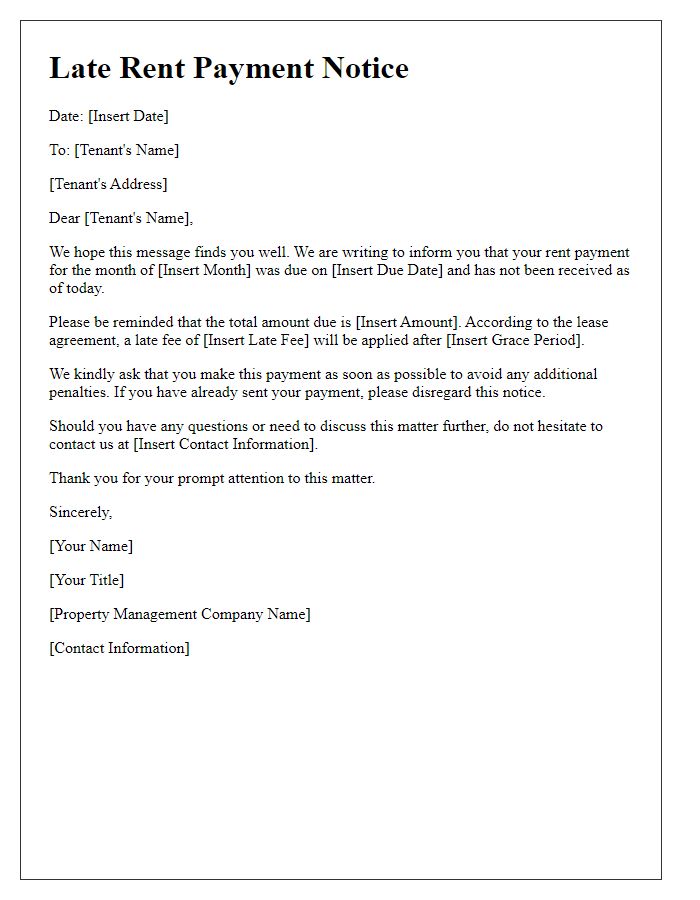
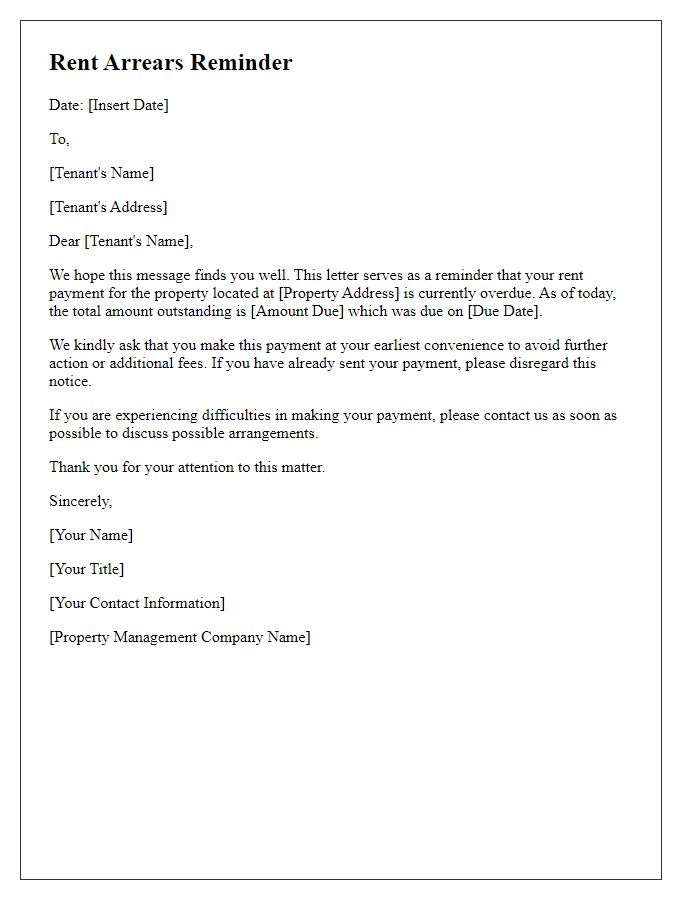
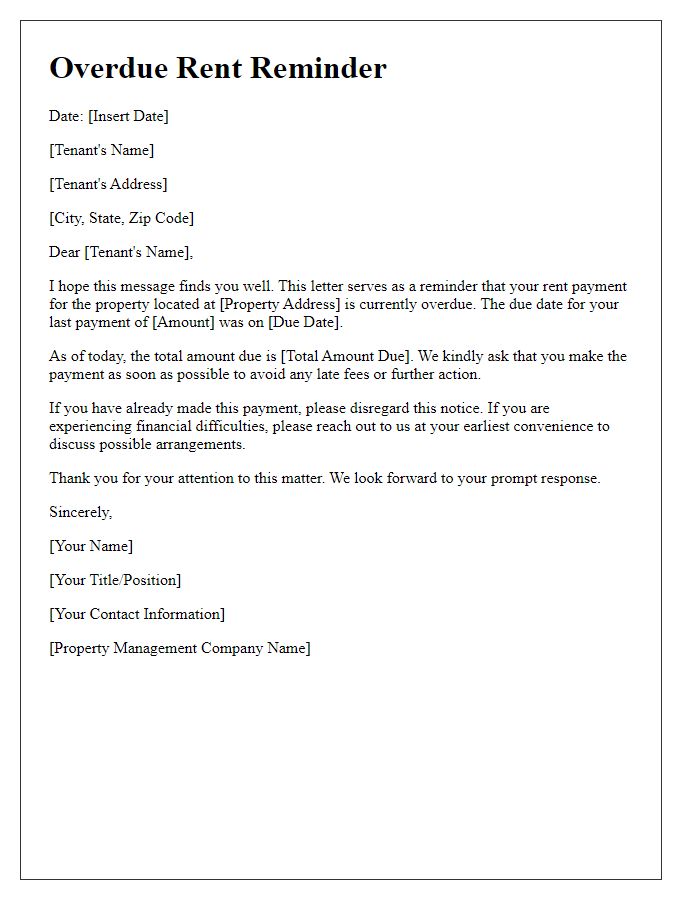
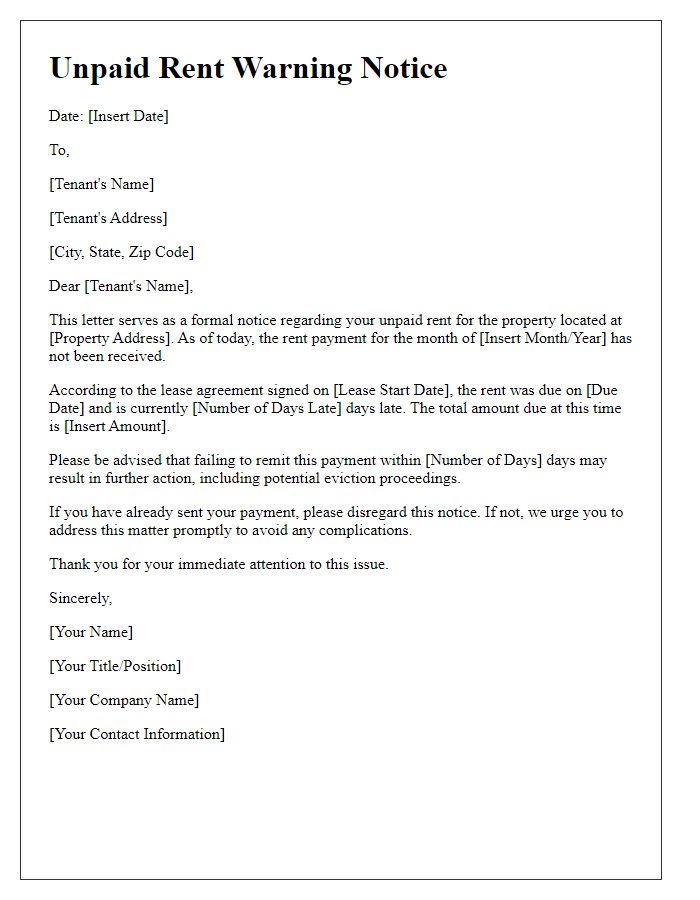
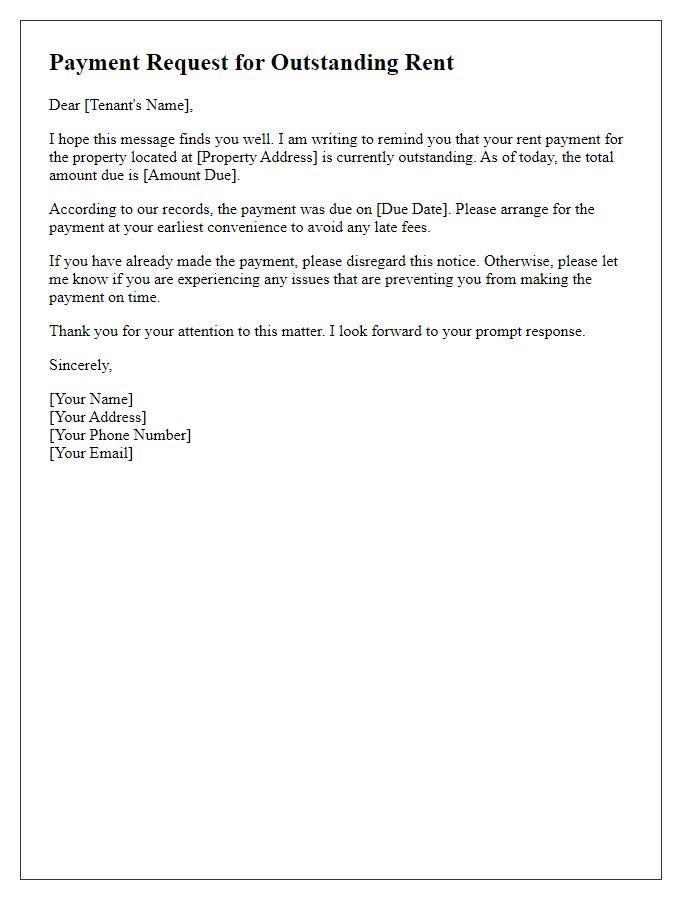
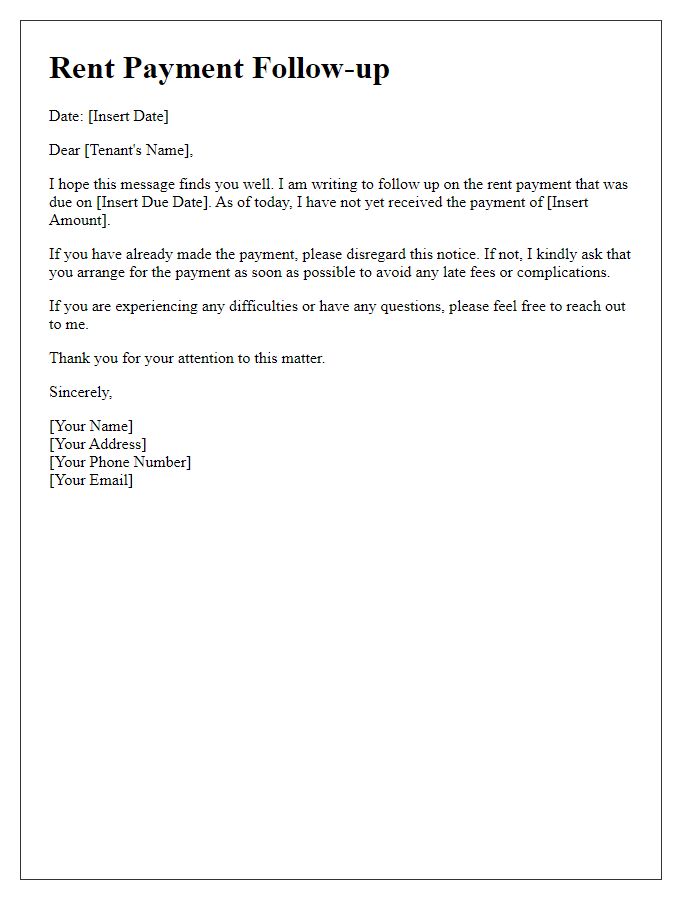
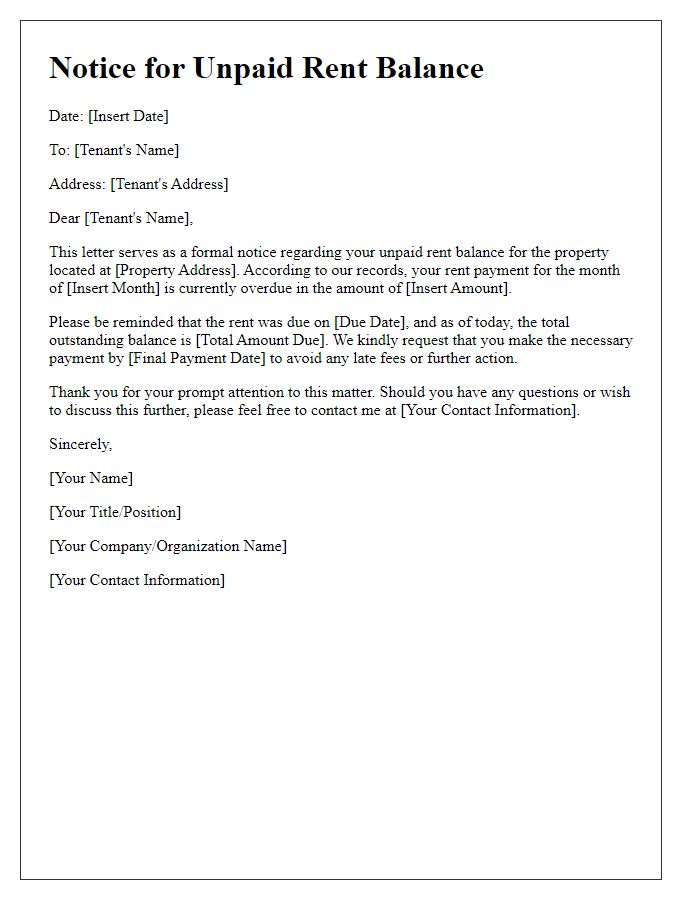
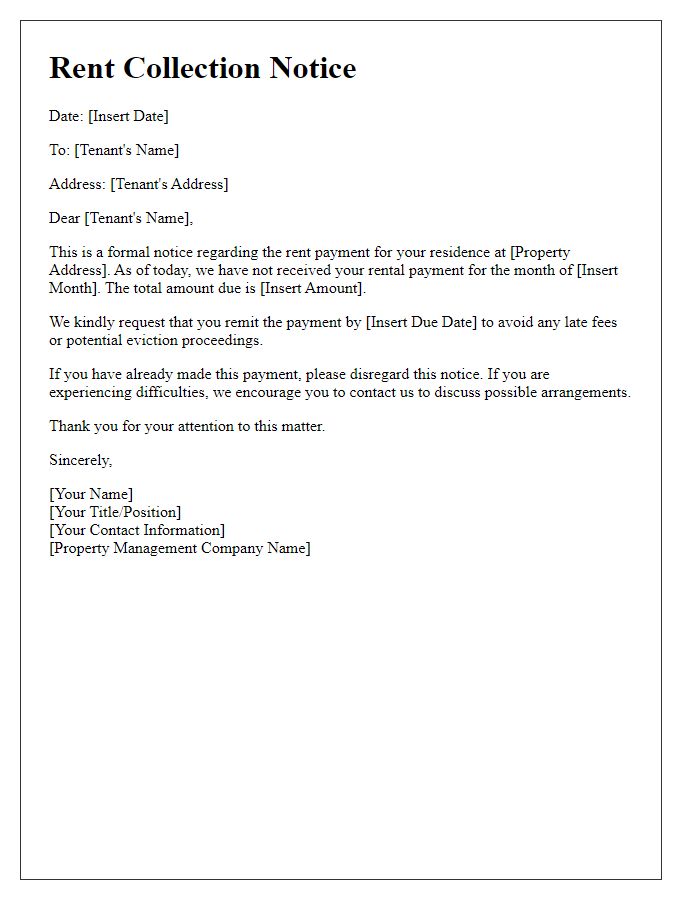
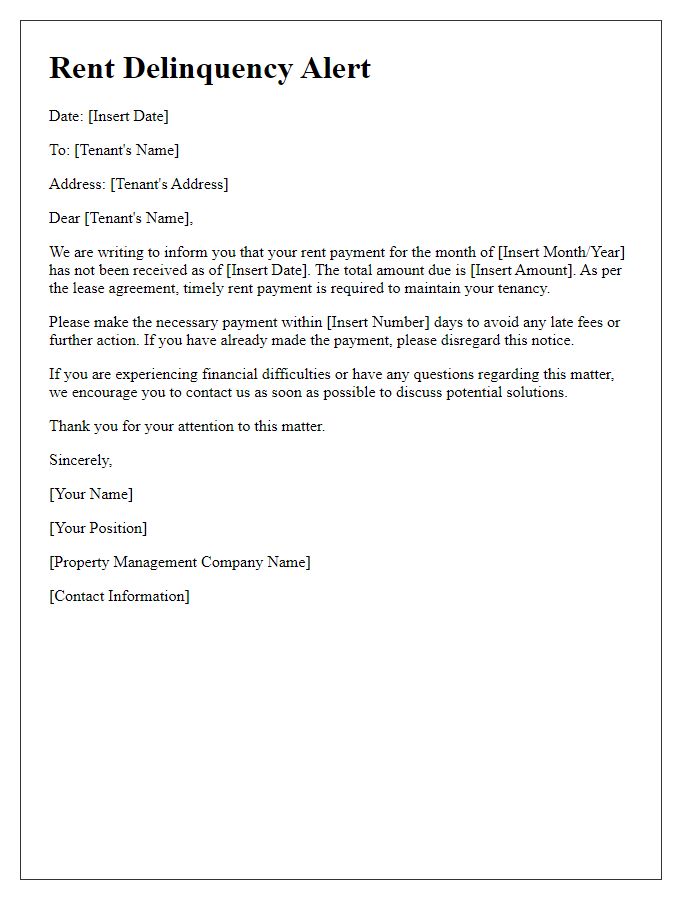
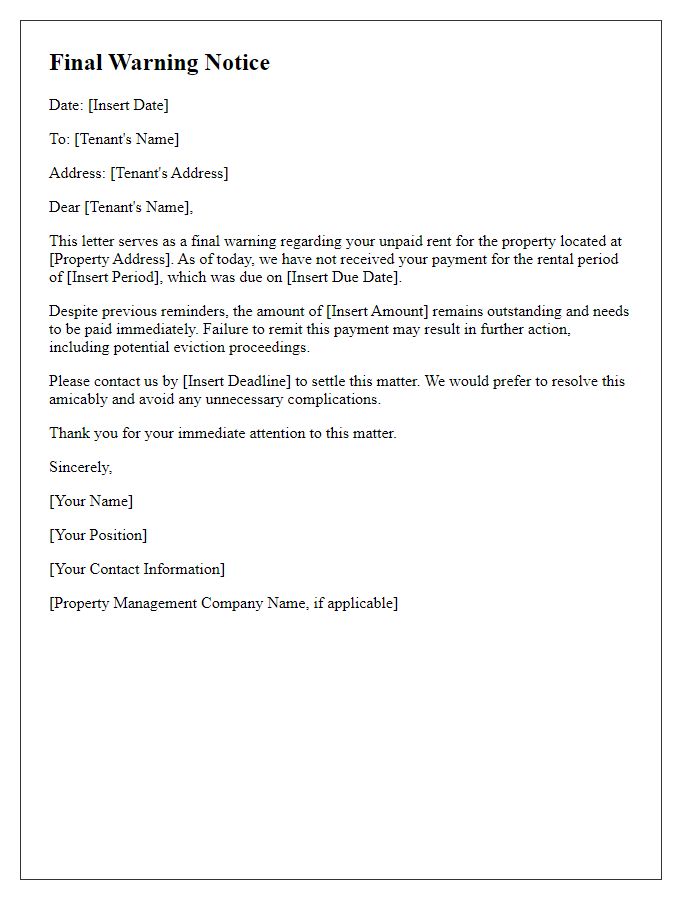

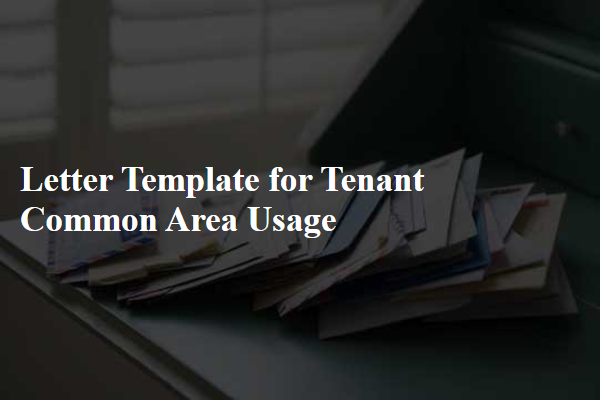
Comments